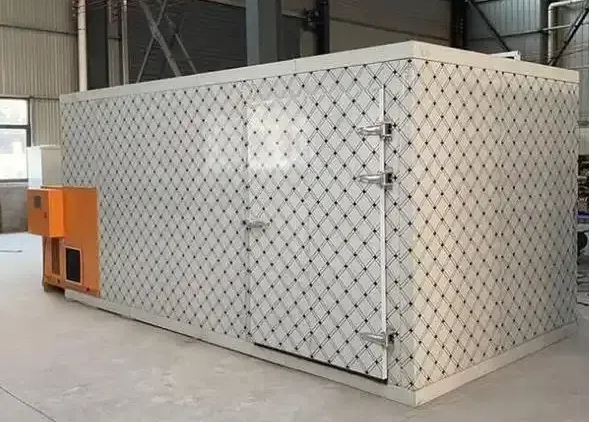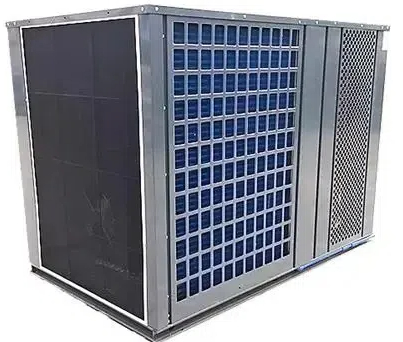
Content Menu
● Introduction
● Understanding Food Dehydration
>> How Heat Pump Dryers Work
● Benefits of Affordable Heat Pump Dryers
● Applications of Food Dehydrators
>> 1. Commercial Use
>> 2. Home Use
>> 3. Pharmaceuticals
>> 4. Pet Food Production
● Choosing the Right Affordable Heat Pump Dryer
● Maintenance Tips for Heat Pump Dryers
● Innovations in Heat Pump Dryer Technology
● Conclusion
● Frequently Asked Questions
>> 1. What is the main advantage of using an affordable heat pump dryer?
>> 2. Can I use a heat pump dryer for all types of food?
>> 3. How does a heat pump dryer compare to traditional drying methods?
>> 4. What should I look for when purchasing a heat pump dryer?
>> 5. How do I maintain my affordable heat pump dryer?
Introduction
In the ever-evolving landscape of food preservation, food dehydrators have emerged as essential equipment for both commercial and home kitchens. Among the various types of dehydrators available, affordable heat pump dryers stand out for their energy efficiency and effectiveness in preserving food quality. This article delves into the benefits, features, and applications of food dehydrators, particularly focusing on affordable heat pump dryers.

Understanding Food Dehydration
Food dehydration is a process that removes moisture from food to inhibit the growth of bacteria, yeasts, and molds. This method not only extends the shelf life of food but also concentrates flavors and nutrients. Various types of dehydrators exist, but heat pump dryers are gaining popularity due to their advanced technology and cost-effectiveness.
How Heat Pump Dryers Work
Heat pump dryers utilize a refrigeration cycle to extract moisture from food. They work by circulating warm air over the food items, which evaporates moisture. The moisture-laden air is then passed through a heat exchanger where it is cooled down, allowing water vapor to condense. This process is energy-efficient and maintains the nutritional value of the food.
Benefits of Affordable Heat Pump Dryers
1. Energy Efficiency: Affordable heat pump dryers consume significantly less energy compared to traditional electric or gas dryers. They can reduce operational costs while providing effective drying results.
2. Nutrient Preservation: These dryers operate at lower temperatures, helping to retain vitamins and minerals that might be lost in higher-temperature drying methods.
3. Versatility: Heat pump dryers can handle a wide range of products including fruits, vegetables, meats, and herbs, making them suitable for various industries.
4. Cost-Effectiveness: With lower energy consumption and maintenance costs, affordable heat pump dryers offer a great return on investment for businesses looking to enhance their drying processes.
5. User-Friendly Design: Many models come equipped with digital controls that allow users to set specific drying times and temperatures easily.
6. Reduced Environmental Impact: By consuming less energy and often utilizing eco-friendly refrigerants, heat pump dryers contribute to lower carbon footprints compared to conventional drying methods.
7. Consistent Quality: The controlled environment within heat pump dryers ensures uniform drying across all products, reducing the risk of spoilage or uneven textures.
8. Compact Design: Many affordable heat pump dryers are designed to be space-efficient, making them suitable for both small kitchens and large commercial spaces.
Applications of Food Dehydrators
1. Commercial Use
In commercial settings, affordable heat pump dryers are used extensively in the production of dried fruits, vegetables, jerky, and snacks. Their ability to maintain consistent quality while operating efficiently makes them ideal for large-scale operations.
For instance, companies producing dried fruits like apples or apricots benefit from the ability to dry large batches without compromising flavor or texture. The controlled environment minimizes the risk of over-drying or burning products.
2. Home Use
For home users, these dryers allow individuals to preserve seasonal fruits and vegetables for year-round enjoyment. They are perfect for making homemade snacks like dried fruits or vegetable chips.
Home gardeners often turn surplus produce into dried goods that can be stored for months. This not only reduces waste but also allows families to enjoy their garden's bounty throughout the year.

3. Pharmaceuticals
Heat pump dryers are also utilized in the pharmaceutical industry for drying herbs and other medicinal plants without compromising their active ingredients. This application is crucial as it ensures that the medicinal properties remain intact during the drying process.
4. Pet Food Production
Another growing application is in pet food production where natural ingredients are dehydrated to create nutritious treats for pets. Affordable heat pump dryers provide an efficient way to produce high-quality pet snacks that appeal to health-conscious pet owners.
Choosing the Right Affordable Heat Pump Dryer
When selecting an affordable heat pump dryer, consider the following factors:
- Capacity: Choose a dryer that fits your production needs—larger capacities are suitable for commercial use while smaller models may suffice for home use.
- Temperature Control: Look for models with adjustable temperature settings for different types of foods; this feature allows you to customize drying conditions based on specific requirements.
- Energy Rating: Opt for energy-efficient models to save on operational costs; many manufacturers provide energy consumption ratings.
- Brand Reputation: Research brands known for reliability and customer service; reading reviews can provide insights into product performance and durability.
- Warranty and Support: Ensure that the manufacturer offers a good warranty period along with customer support services; this can be crucial if you encounter any issues with your dryer.
Maintenance Tips for Heat Pump Dryers
To ensure longevity and optimal performance of your affordable heat pump dryer:
- Regularly clean filters and fans to prevent dust accumulation; this helps maintain airflow efficiency.
- Inspect seals and gaskets regularly; worn seals can lead to energy loss and decreased performance.
- Schedule periodic professional maintenance checks; having a technician evaluate your dryer can prevent minor issues from becoming major problems.
- Keep the dryer in a well-ventilated area; proper airflow around the unit can enhance its efficiency.
- Monitor drying times; overloading the dryer can lead to uneven drying results; always follow manufacturer guidelines regarding load sizes.
Innovations in Heat Pump Dryer Technology
The field of food dehydration is continually evolving with advancements in technology. Recent innovations include:
- Smart Technology Integration: Many modern heat pump dryers now come equipped with smart technology that allows users to monitor and control their units remotely via smartphone apps.
- Enhanced Energy Recovery Systems: Newer models feature improved energy recovery systems that further reduce energy consumption while maximizing drying efficiency.
- Multi-layer Drying Racks: Some designs incorporate multi-layer racks that allow users to dry different types of food simultaneously without cross-contamination of flavors or odors.
These innovations not only improve user experience but also contribute significantly to sustainability efforts within the industry.
Conclusion
Affordable heat pump dryers represent a significant advancement in food preservation technology. Their energy efficiency, versatility, and effectiveness make them an excellent investment for both commercial enterprises and home users alike. As the demand for high-quality dried foods continues to grow, incorporating an affordable heat pump dryer into your operations can enhance product quality while reducing costs.
Investing in an affordable heat pump dryer not only provides immediate benefits such as cost savings and improved product quality but also positions businesses favorably in an increasingly competitive market focused on sustainability and health-conscious choices.

Frequently Asked Questions
1. What is the main advantage of using an affordable heat pump dryer?
The main advantage is their energy efficiency; they consume less electricity than traditional dryers while effectively preserving food quality.
2. Can I use a heat pump dryer for all types of food?
Yes, affordable heat pump dryers are versatile and can be used for fruits, vegetables, meats, herbs, and more.
3. How does a heat pump dryer compare to traditional drying methods?
Heat pump dryers operate at lower temperatures which helps retain more nutrients compared to traditional methods that may use higher temperatures.
4. What should I look for when purchasing a heat pump dryer?
Consider capacity, temperature control options, energy ratings, and brand reputation when selecting a model.
5. How do I maintain my affordable heat pump dryer?
Regularly clean filters, check seals, and schedule professional maintenance to ensure optimal performance.












